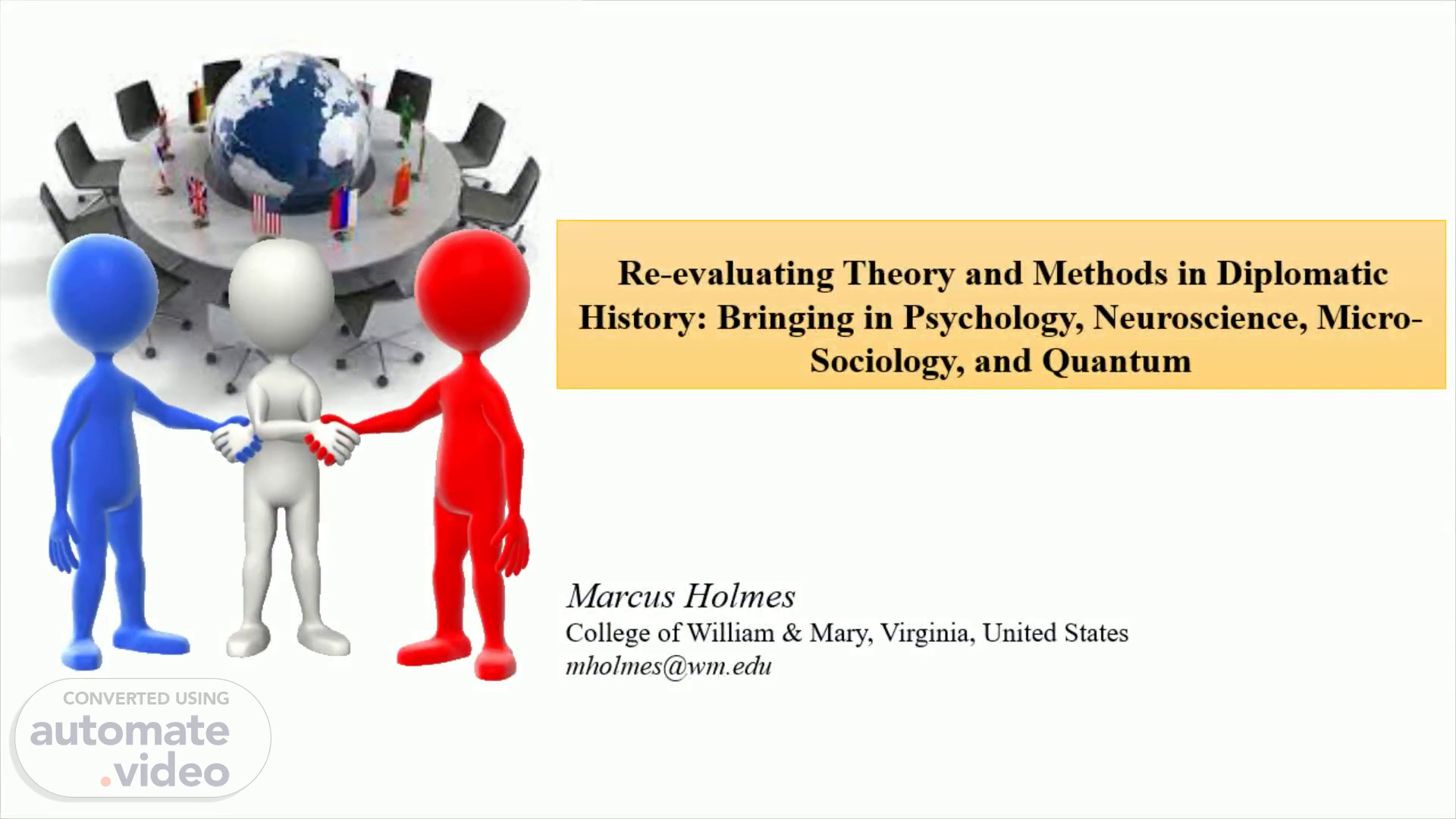
Page 1 (0s)
[Audio] Hello everyone this video script is regarding the article ….
Page 2 (17s)
[Audio] In the International Relations domain diplomacy has never been welcomed or given importance, specifically in the American context.
Page 3 (27s)
[Audio] As according to them the diplomats and other practitioners following the diplomacy have always shown a resistance towards the scientific research study and hence the inferences are always theoretical with non-significant impact on outcomes.
Page 4 (42s)
[Audio] This article has tried to find the two basic questions arises in everyones mind that is first whether diplomacy should given importance in International Relation policy making and if it is so then how to actually study it and bring it into actual practice.
Page 5 (1m 2s)
[Audio] The need for finding the improved methods for its study arises as after the end of Cold War the old structural and traditional theories have failed in assessing the life changing milestones occurred. And such interpretations without any scientific base which in turn have adversely given more strength to the security dilemma..
Page 6 (1m 28s)
[Audio] From this point the concept of individual-level theories came into existence which can act as a bridge between the old concept of diplomacy for solving the huge problem of present situation that is security dilemma. It has the potential of providing a suitable solution through interdisciplinary approaches..
Page 7 (1m 48s)
[Audio] The first domain is psychology. The research study under this can help in interpreting the role of individual-traits in decision making as well as the interaction outcomes between alike or variant personalities. micro-sociology domain can provide a set of model answers for predicting the success or failure of any diplomatic meetings and interactions with the help of small groups observational study. The social neuroscience domain which can help in designing the standard procedures and duration for training of diplomats on the basis of research in the sector of the source of activation for the behaviour and changes persistence time of brain. The quantum model as compared to classical model consider the mind entangled through language and context hence both effect in individual interpretation of any interaction..
Page 8 (2m 40s)
[Audio] The implication of this interdisciplinary individual interaction approach points towards an improvised version of diplomacy study and training, focussed on taking benefits of human element of diplomatic interactions through short-term trainings. specifically for prosocial behaviours (replacing naïve sense of sympathy with valuable sense of empathy). This can bring the much-awaited need of equal blend of diplomacy and facts in international relations.
Page 9 (3m 10s)
[Audio] These insight approaches are approaching towards bringing a productive change in the diplomacy in near future with high emotional intelligence with a proper balance between mind and emotions..